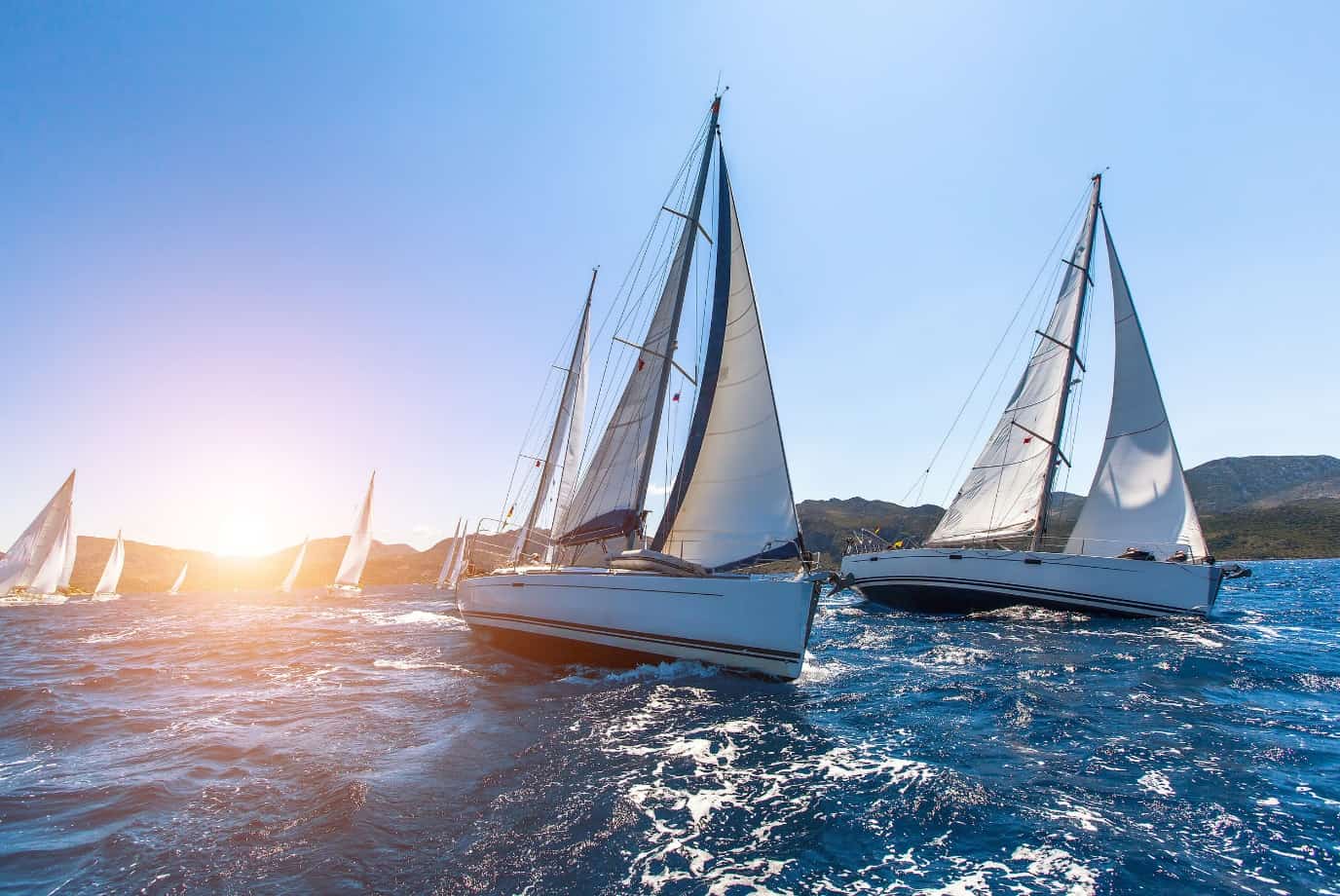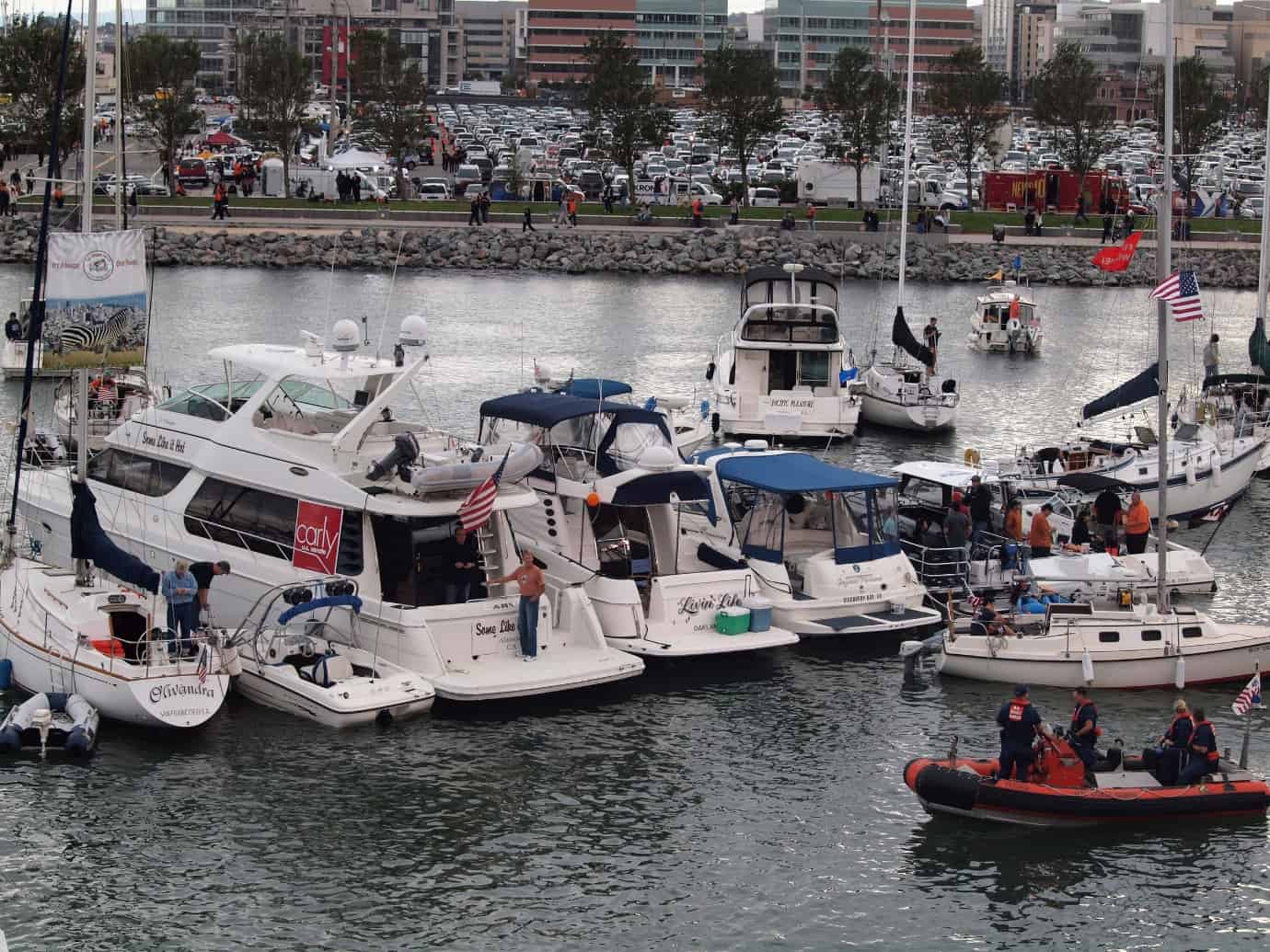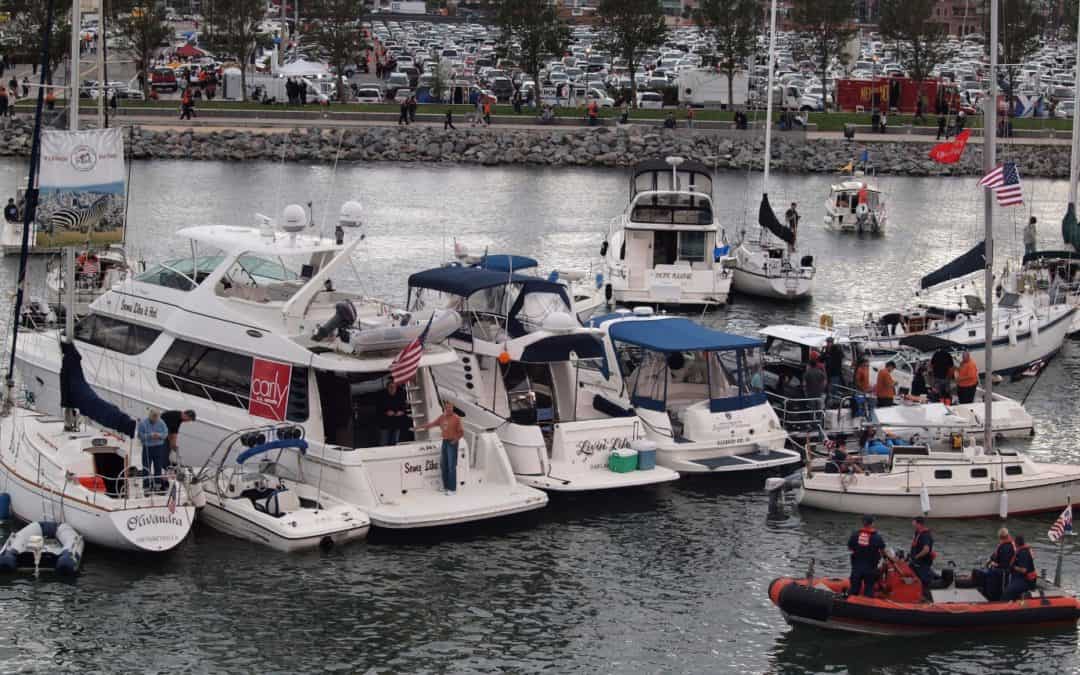The skipper is the responsible person on any boat or ship. He or she is responsible for any person onboard a vessel under their control.
When using your new or used boat in Perth, Western Australia there are some rules and etiquette to follow.
You will have read about the rules and legislation that apply to boating and how they affect boat operation.
The hard and fast rules are part of getting your recreational skippers’ licence.
There are some unwritten rules that are known as boating etiquette and they contribute to making boating safer and more enjoyable. Boating etiquette begins before you even launch your boat.
Prepare Before You Get to The Boat Ramp
We have all waited at the boat ramp while someone takes several attempts to back their boat down to the water or even more annoying, begins to prepare their boat on the ramp.
This is bad etiquette, not only is it annoying to other boat owners it is frustrating for those waiting.
Having good etiquette would mean that you have prepared your boat before you left home.
So, when you arrive all you would need to do is undo your winch strap.
People who are not yet competent at reversing their boats into the water should have some practice before leaving home. It will not only save you from being embarrassed, it will reduce the time taken for launching your boat and s for those waiting in line.
Remember to take turns at the ramp as a rule one boat should be launched as one boat is retrieved.
Marina Etiquette
When berthed in a Marina etiquette and unwritten rules apply.
They are usually common sense, but they make a big make a difference to your safety and enjoyment as well as to your neighbours.
A basic rule of boating etiquette is never boarding a boat without permission from the owner.
This is because the boat is the owner’s home, it’s the same as why we knock on someone’s front door before walking in.
You may be asked to remove your shoes before boarding and it is good etiquette to do this.
Entertaining onboard is one of boating’s great joys. Clean up straight away. Any food left out can attract insects, birds like seagulls (flying rats) or other vermin.
Another thing you should be considerate about is if you are entertaining, noise travels long distances over water so you should consider the volume level of your music. Your neighbours may not enjoy your taste in music, or they may just want some quiet time.
You should not leave your tools, ropes, bags and equipment on docks or walkways.
They create a trip hazard and can obstruct people from moving supplies down to their boats and blocking the walkway.
You need to ensure that the boat’s lines, cords and hoses are neatly coiled and stored so these do not become tripping hazards, especially at night.
Good etiquette and manners also require you to make sure that your bow and anchor do not overhang the walkway when you moor bow first in your pen.
When refuelling move on from the refuelling dock as soon as you have finished refuelling your boat.
Be Considerate
If you encounter a yacht race you should keep clear and try to pass behind the last boat in the fleet. It shows a lack of consideration, bad etiquette and a lack of seamanship to pass through a racing fleet.
Your wake could have an influence the outcome of the race.
You should avoid following directly behind the boat, skier or wake boarder in front. If the skier falls off, they may be in your line of travel.
Follow off to one side at a safe distance.
You should keep clear around boats that are fishing.
Coming too close if a boat is trolling you may snag fishing lines.
Do not drive through areas where birds are working.
This indicates fish activity and driving through them will scare them.
If you scare the fish when you could have gone around them upsets the fishermen.

Sharing Space
You should avoid where possible, interfering with another boat’s lines. I
If you need to share a bollard or cleat, first ask permission if the boat owner is about.
Cleating off is a good way to secure your boat, but their other ways to consider such as when several boats are using the same cleat or bollard. There is a technique that allows boats to go without having to disturb the mooring lines.
You pass the loop or the eye of your line up from below through the eye of the other boat’s line, then drop it over the bollard or cleat.

Keeping The Peace
Finding a peaceful inlet or bay to drop the anchor or moor is something all boaters enjoy.
If you are staying for just a few hours or overnight there are some well-accepted guidelines that should be followed.
When you are anchoring, don’t get too close to other boats.
You need to be aware of the swinging circle when your boat moves with wind and tide. A good rule of thumb is that your boat’s swing radius will be about half the distance of the anchor you have dropped, plus the boat’s length added together.
You should leave plenty of room to avoid any chance of an accident.
Consider your boat as a temporary home and not everyone wants to have close neighbours, be considerate and leave some space.
Etiquette and consideration require you to be aware of your wake.
The amount of wake generated by boats can vary depending on your speed and sea conditions.
Kayaks, canoes, small boats, jet skis and fishermen are common on our and around our waterways.
There are two traditions that you should remember. These are boat names, and New Year’s Eve.
When naming or renaming boats they should always be christened with champagne.
When celebrating New Year’s Eve aboard a boat a tradition is that the youngest person aboard should count down the New Year.
What Is “DIPPING THE EYE”?
- This is a technique used when mooring where another vessel is already tied up.
- Using this technique avoids putting your line on top of the line that is already there.
- When you ‘Dip the eye’ you are bringing the loop of your line, from below, through the eye of the first line and then over the cleat or bollard.
Boat Finance
If you require boat finance for pleasure or commercial use call Loans123 on 1800 100 100 or apply online at www.loans123.com.au

